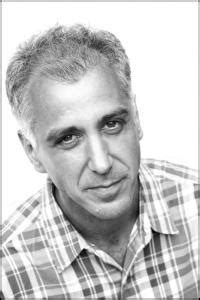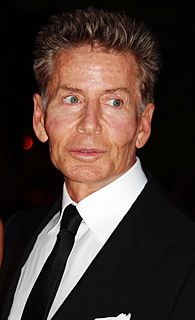A Quote by Daniel Handler
A newspaper, as I'm sure you know, is a collection of supposedly true stories written down by writers who either saw them happen or talked to people who did. These writers are called journalists, and like telephone operators, butchers, ballerinas, and people who clean up after horses, journalists can sometimes make mistakes.
Related Quotes
Journalists in newspapers and in many magazines are not permitted to be subjective and tell their readers what they think. Journalists have got to follow a very strict formulaic line, and here we come, these non-fiction writers, these former journalists who are using all the techniques that journalists are pretty much not allowed to use.
You know, it's a funny thing about writers. Most people don't stop to think of books being written by people much like themselves. They think that writers are all dead long ago--they don't expect to meet them in the street or out shopping. They know their stories but not their names, and certainly not their faces. And most writers like it that way.
From the essay "Twenty-five Things People Have a Shocking Capacity to Be Surprised by Over and Over Again" 1. Journalists sometimes make things up. 2. Journalists sometimes get things wrong. 3. Almost all books that are published as memoirs were initially written as novels, and then the agent/editor said, This might work better as a memoir. 6. Freedom of the press belongs to the man who owns one.
I think that all journalists, specifically print journalists, have a responsibility to educate the public. When you handle a culture's intellectual property, like journalists do, you have a responsibility not to tear it down, but to raise it up. The depiction of rap and of hip-hop culture in the media, I think, is one that needs more of a responsible approach from journalists.
I think that all journalists, specifically print journalists, have a responsibility to educate the public. When you handle a culture's intellectual property, like journalists do, you have a responsibility not to tear it down, but to raise it up. The depiction of rap and of hip-hop culture in the media is one that needs more of a responsible approach from journalists. We need more 30-year-old journalists. We need more journalists who have children, who have families and wives or husbands, those kinds of journalists. And then you'll get a different depiction of hip-hop and rap music.
The most obvious inspiration to be brave is that we all feel it: you can't have free expression right now in a very wide range of countries. It takes a lot of guts for writers and journalists in those countries to stand up against repression and do what they do. Russia is a case in point where, as you know, journalists have an embarrassing habit of being killed for their reporting.
We live in a world filled with language. Language imparts identity, meaning, and perspective to our human community. Writers are either polluters or part of the clean-up team. Just as the language of power and greed has the potential to destroy us, the language of reason and empathy has the power to save us. Writers can inspire a kinder, fairer, more beautiful world, or invite selfishness, stereotyping, and violence. Writers can unite people or divide them.


































